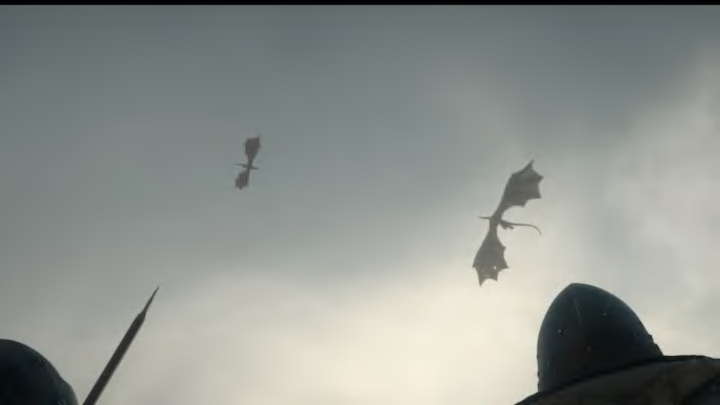Whatever you think of Game of Thrones and prequel show House of the Dragon, everyone agrees that the music absolutely slaps. It's composed by Ramin Djawadi, who's been coming up with epic earworms since the start of Game of Thrones in 2011. Even when the shows come up short, the music stands tall. Take the season finale of House of the Dragon season 2, which ends with a montage of people marching to war. Fans may have wanted the show to follow up on those events, but the score almost makes it worth it.
Djawadi takes his work very seriously, carefully building themes so they can have maximum impact. House of the Dragon season 2 was a bit unusual in that he was able to watch all the episodes ahead of time, which helped with planning. “I don’t know if I ever had pretty much all the episodes available to me at once before," he told IndieWire. "Episode 4 came in a little bit later… but even then they showed me an early cut and it was just great to see the overall arc. I was able — like with Rhaena’s (Phoebe Campbell) theme for example, I was able to jump through all of the episodes and write those pieces. I could see where this is going and how I can develop this theme and everything.”
That meant he could develop and reuse themes with precision. For instance, take the main theme of the show, which is simply called the "War" theme. It shows up at the top of Episode 202, "Rhaenyra the Cruel," as King Aegon mourns the murder of his young son Jaehaerys, orchestrated by Queen Rhaenyra's husband Daemon Targaryen. That music returns in Episode 204, "The Red Dragon and the Gold," when King Aegon takes the fight to his enemies atop his dragon. “[In Episode 2] it’s played on piano and viola and cello; it’s very small,” Djawadi said. “I call it the ‘war’ theme but there, it’s actually a very beautiful, almost romantic version of it. After the end of Episode 1, you know, what do you say musically after that? It’s a case where less is more. You see all the characters just trying to cope with what just happened.”
Come the Battle of Rook's Rest, that same theme is played by a whole orchestra, making it sound much bigger and more dangerous. “In an action scene and in this particular setting, big drums will be a big part of [expanding a theme], and then also simply change of instrumentation," Djawadi said. "Instead of having [the theme] on a single solo instrument, this might be played on the full orchestra or on the brass. They’re fattening it up and making it more epic, or taking it to a lower register instead of a higher register. Obviously changing the tempo, too, playing it faster or breaking it up. There’s lots of tools that can be used,”

Djawadi loves remixing themes like this. He's been doing it since the old days of Game of Thrones. "[I]t’s been really great to reuse old themes, expand on them in different arrangements and moods, and see where it takes us and what new things we can add,” he said. “That’s how the score grows nicely with the story.” On House of the Dragon specifically, he's interested in writing music that underscores the growing divide between the two sides in this war: the blacks and the greens.
"I think what’s important to remember is why they’re fighting and how much further it’s going (than either side wants). We’re trying to fix things but somehow things get further and further apart every single time."
The second season of House of the Dragon is over, but Djawadi will be back for the third and fourth, both a while away. We expect him to pop up elsewhere in the meantime. Just this year, he's also provided the scores for 3 Body Problem on Netflix and Fallout on Amazon Prime Video. He's one of the busiest composers in Hollywood, and it's no wonder considering the quality of his output.
To stay up to date on everything fantasy, science fiction, and WiC, follow our all-encompassing Facebook page and Twitter account, sign up for our exclusive newsletter and check out our YouTube channel.
